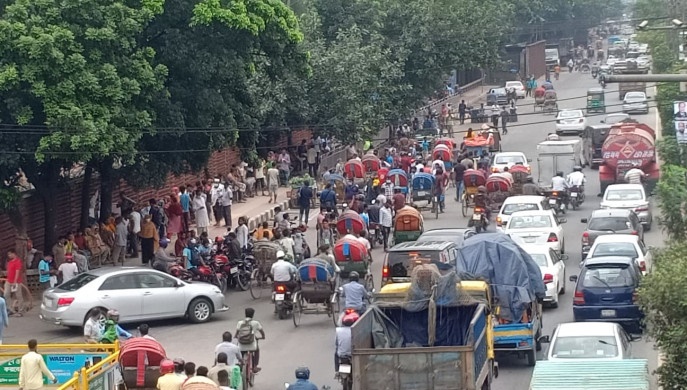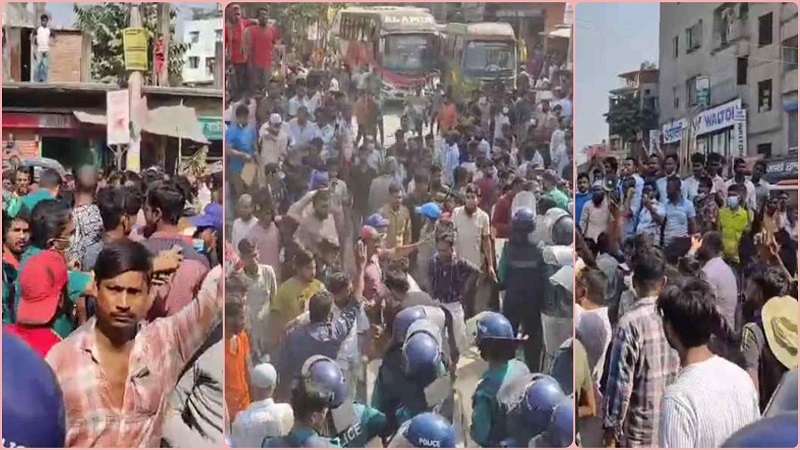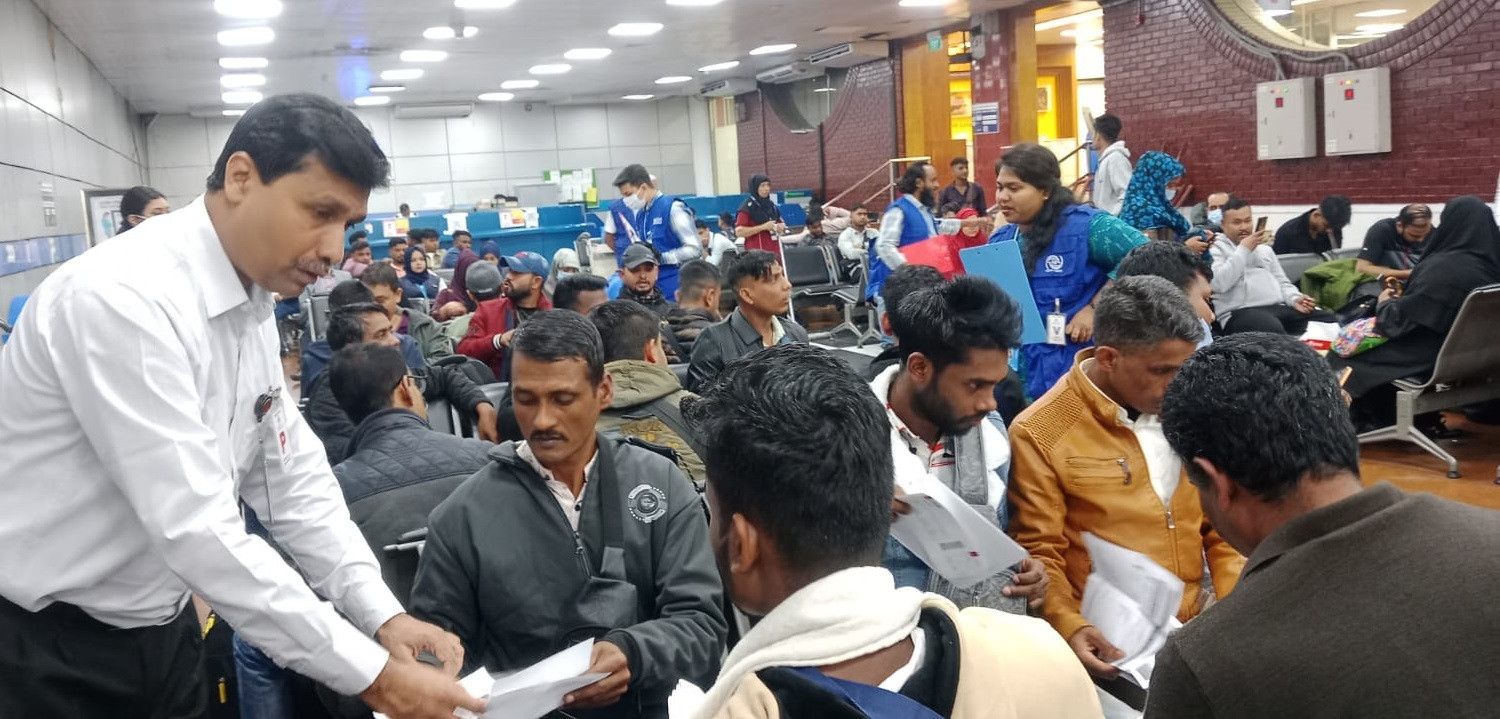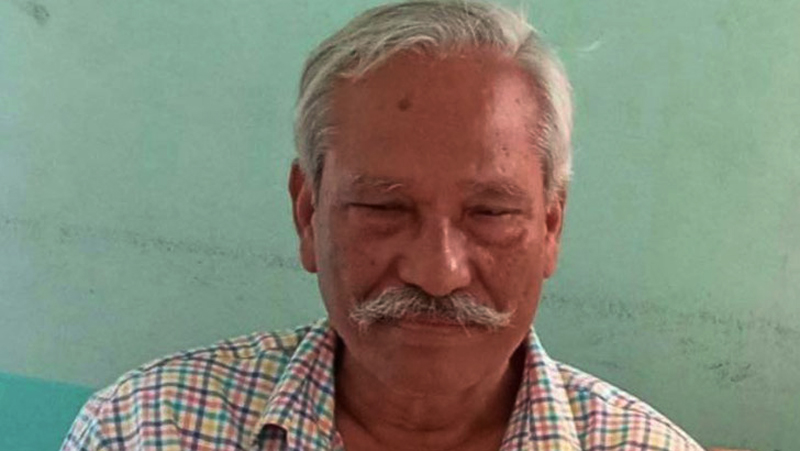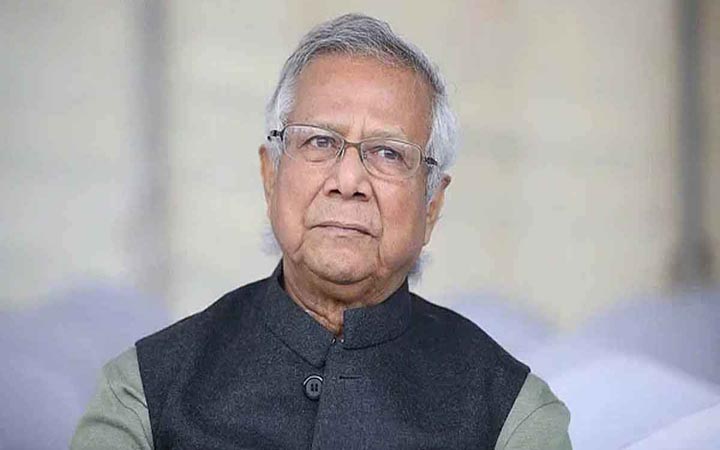Despite the suspension of public transports, the capital city today saw intensified traffic congestion on the second day of the nationwide limited lockdown.
Meanwhile, a limited number of staff buses were seen on the roads.
Besides, cars, microbuses, rickshaws and CNG-run auto-rickshaws were spotted in larger numbers.
In the morning, there was a rush of vehicles at key points of Dhaka, resulting in long tailbacks in parts of the city.
Office-goers suffered the most due to the closure of public transports.
Capital's Uttara-bound passenger Momin, who was waiting at Natun Bazar bus stop for over one hour, said, "Lockdown is there but my office didn't stop its operation, so I have no option other than to reach my workplace, for which I am already running half an hour late."
Abul Khair, who came to Birdem Hospital with his sick wife from Shyamoli, told TBS, "I had to pay Tk300 rickshaw fare, while the bus fare for this distance is only Tk15."
Expressing his frustration Abul Khair said that the restriction on public transports has twisted the knife amid lockdown.
Meanwhile, most of the motorbikes in the city were seen running with pillions.
An on-duty traffic sergeant said, "How many of them we can stop when the number of people breaching the rules is too high. There is a humanitarian aspect as well."
"But we are taking action against those who are not donning facemasks," he added.
The TBS correspondent, however, reported that many people on the road are flouting traffic, as well as hygiene rules. Many people didn't even bother to wear a face mask while some didn't wear them properly.
Although big shopping malls and markets were closed, neighbourhood markets and shops were open like before. No social distancing was maintained there.
After visiting different areas - like Karwan Bazar, Bangla Motor, Shahbagh, and Katabon – TBS correspondents reported no such strict activity by the law enforcement agencies. No additional checkpoints were set up there either.
Ramana Zone Traffic Sergeant Morshedul Islam told The Business Standard they had set up new checkpoints in some areas of the capital.
He said the number of vehicles and people on the road seems to have declined significantly compared to yesterday. Police were initially warning the public regarding the restrictions on road ahead of the all-out lockdown coming into force.
Meanwhile, thousands of home-goers continued to throng at the ferry ghats as the country prepared for the nationwide all-out lockdown to be imposed from 1 July following the deteriorating Covid-19 situation.
Those bound for southern districts thronged Shimulia ghat ferry ghat since early morning. The pressure has been on the rise as the day progressed.
Although all modes of public transports, except goods-laden vehicles and rickshaws, were suspended during the restriction period, passengers were seen travelling to the jetty areas on private vehicles and CNGs.
BIWTC Shimulia ghat Assistant Manager (Commerce) Faisal Ahmed said that there are no specific instructions regarding passenger transit, therefore, those who are coming are able to cross the river via the 14 ferries that are plying the Shimulia-Banglabazar route ahead of the lockdown.
The government has announced the seven-day strict lockdown from 1 July at 6am to 7 July midnight to curb the transmission of the dreaded Covid-19, after the National Technical Advisory Committee on Covid-19 recommended a 14-day strict shutdown be imposed across the country.
During the time, Army, Border Guard Bangladesh (BGB) and Battalion Police will be deployed to take all measures to implement the lockdown effectively.
During the lockdown, both public and private transports will not be allowed to ply on the roads. Only those providing emergency services will be allowed to operate, while no movement passes will be issued this time. Besides, no pillions will be allowed on motorbikes in the capital during the upcoming stringent lockdown.
Moreover, Bangladesh has extended the closure of the border with India till 14 July due to a surge in Covid-19 infections and casualties.
The country on Monday (28 June) recorded the highest number of 8,364 Covid-19 cases and for the third time over 100 deaths from Covid-19 in less than a week.


